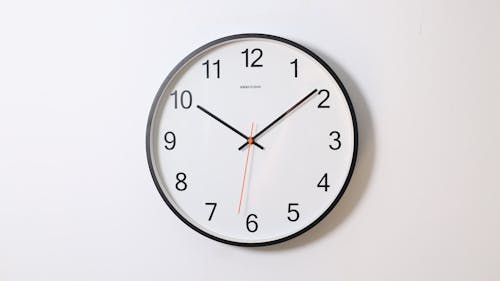EDITORIAL: Time's up on changing your clocks
As federal legislation advances to make daylight savings time permanent, an array of issues are brought up

We recently just sprung ahead — every year, on the second Sunday in March, we move our clocks ahead exactly 1 hour and enter daylight saving time. The time change comes in the spring, and it gives us an extra hour of light in the evening. That added hour of daylight at the end of the day is nice and gives us more opportunities in the evenings to go outside and do things.
If you like daylight saving time, you might be in luck, as the Senate just unanimously passed the Sunshine Protection Act, which would make daylight saving time permanent. If signed into law, the act would make the time permanent starting in 2023.
The legislation still needs to pass in the House of Representatives and then be signed into law by President Joseph R. Biden Jr. But despite those hurdles, it seems like permanent daylight saving time might actually become a reality.
It might seem strange that, in the middle of so many problems and various crises, the government would decide to tackle this particular issue now.
Although time might not seem that important, serious issues arise when we change the clocks that deserve legislative attention. Although there might be more pressing concerns the government should be dealing with, time affects everyone, and we all need to be informed and active in the conversations around the time we use.
While whether daylight saving time should be made permanent is questionable, there are many benefits in creating and sticking to one time throughout the whole year.
Changing the clock has been associated with increased heart attacks and traffic accidents as people adjust to the time change and make up for possible sleep loss. In fact, researchers have found that there was an 8 percent higher rate of strokes in the two days immediately after the change to daylight saving time.
The change to standard time in the fall also comes with a set of issues. One study found that in the fall, right after the return to standard time, hospitals experienced an 11 percent increase of patients with depressive symptoms.
These challenges point to the serious problems in changing the time and underscore why getting rid of the changes might be a good thing. In terms of mental health, it makes sense that permanent daylight saving time might help avoid some of the worst aspects of seasonal depression as people are able to go out and do things more while it is light outside, and kids are able to stay out playing later.
As students at Rutgers, a transition to permanent daylight saving time would benefit us. Take, for example, having a class on Cook campus. More students are likely to have a class there that ends at 6 p.m., rather than one that starts at 8 a.m. An extra hour of light in the evening would make students getting out of class there feel safer as there is more visibility.
An extra hour of light in the evening is beneficial. It gives everyone more opportunity to go out and do things after work or after school, and especially for students and young people, it helps everyone feel safer if they are out later.
Regardless, though, of whether we stick to daylight saving time or standard time, it has become abundantly clear that we need to do away with changing the time in general.
This push to make time permanent shows that things can still happen in Washington, D.C. — bipartisanship is not lost if enough people support an issue. In fact, 59 percent of Americans actually support making daylight saving time permanent — a clear majority. To that end, the move by Congress to make it permanent reflects the will of the people and how legislators can still come together and get things done.
While it may come at a weird time, this push for permanent daylight saving time can actually be seen as an optimistic example of what is possible in American democracy. It also goes to underscore the importance of organizing and making sure our voices are heard. If you care about an issue, make it known. Especially as midterms approach, it is always important to fight for the things and the issues that you care about.
If you care about an issue, no matter how unknown or niche, it is important to have conversations about it.
The Daily Targum's editorials represent the views of the majority of the 154th editorial board. Columns, cartoons and letters do not necessarily reflect the views of the Targum Publishing Company or its staff.



